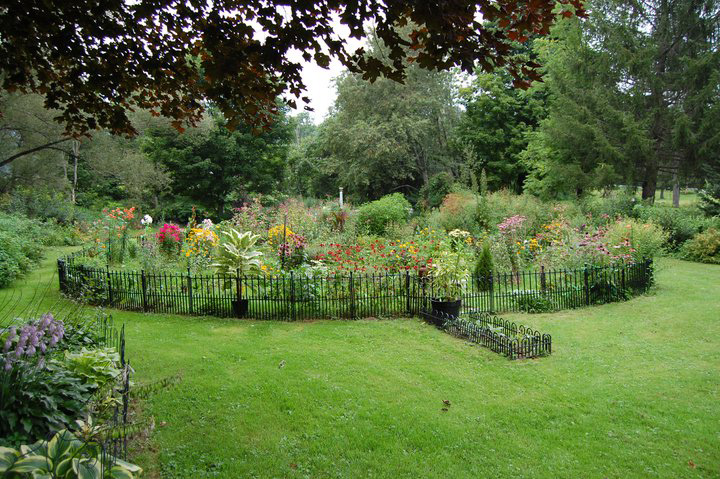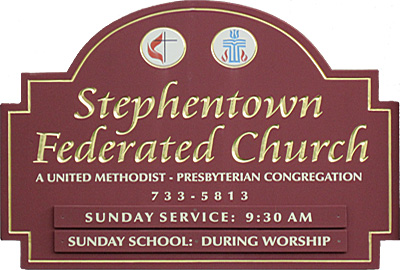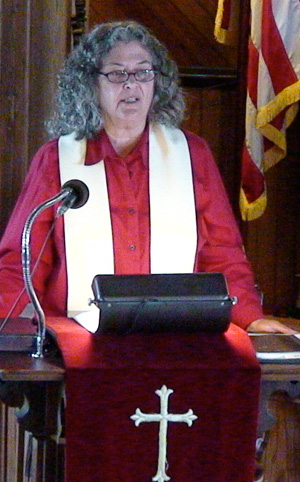Pastor's Sermons
SERMON REFLECTIONS FROM JULY
I am partial to sermon themes which link from week to week. I am also a believer in the renewal that comes from taking a break! Therefore, for the summer, I will be posting a monthly synopsis of our sermon reflections.
In the recommended Gospels, as in life here, July is all about seeds, planting and reaping. They were also all about Parables.
Jesus of Nazareth was a master teacher, because in telling stories he was able to stretch people’s imaginations by using symbols which resonated with them. Parables were not used to “dumb down” a lesson; they were used to open new ways of looking at every-day things. They help us to see sacred lessons in every part of our experience.
This time of year we look at the world around us and we see creation abounding. We see the fruit of our labor in the fields and the life of weeds!
My spiritual life is enriched by the “Living Labyrinth” of flowers which I tend; we had slides of it in church. (Hopefully, it has copied at the end of this post. The lesson from the Labyrinth is this: There are places at which we reach a switchback. It appears that we are going backwards, but in reality we are still going forward, being led to the center. Sometimes in our lives we feel that our direction is confusing; it is then that we must trust the path.
Jesus also spoke of his “yoke” being easy, and the burden light. We can think of a yoke which binds oxen to hard labor, or we can see a yoke which binds us to one another. In sharing the labor, it becomes lighter and we do not bear our life’s burdens alone. And what about seeds? One week we heard a story about a man who sowed seeds on various soils, with mixed results. The next we heard about seeds sown in the same soil which also had mixed results, because weeds were also sown there. The first leads us to remember that we must consciously tend to our own soil/soul. Thomas Merton, in The Seeds of Contemplation talks about taking time to be silent, to be quiet and simply let the “seeds” of God’s love take root.
 The story about the weeds and tares helps us to remember that it is not up to us to decide what/who is “worthy” to be among us. A large bouquet of flowers (cut from the Labyrinth) was our visual aid, providing opportunity to relate the parable to what is right before us.
The story about the weeds and tares helps us to remember that it is not up to us to decide what/who is “worthy” to be among us. A large bouquet of flowers (cut from the Labyrinth) was our visual aid, providing opportunity to relate the parable to what is right before us.
For example:
-Bee balm attracts… well… bees! So is it a “bad” plant to have in the garden? Without bees, pollination would be severely impacted. Hmmm.
-Coneflowers (echinacia) can be used medicinally. However, if not used properly, it can be poisonous. So… good plant? Or bad?
-Milkweed is big, bold, and shows up without invitation. It would be easy to label it a weed and yank it out! Begone, weed! However: monarch butterflies lay their eggs under the leaves of milkweed. Come August, we will have a blessed crop of butterflies in the garden. So… weed or valuable plant?
These are only three examples of how the world around us can be a Parable. We do not have to go far for inspiration nor sit with a holy book to be taught. After our healing service, people took one of the flowers to serve as a reminder:
Every season, every day, everything we see in creation provides an opportunity to expand our vision and understanding of a holy life.
Enjoy the blessings of Summer! Rev. Susan


